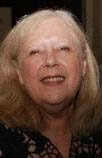You can follow U.S. 1 straight into St. Augustine where Flagler College is located. My mission for the trip involved talking with creative writing juniors and seniors—mostly English majors—about James Dickey, his poetry, and what it was like to study with him as a student and to maintain ties with him until his death.
Dr. Carl Horner, director of Creative Writing at the college, had arranged my visit. The comfortable room in the Flagler College Library located on Sevilla Street was perfect—large enough to offer ample seating but not so large that intellectual intimacy suffered.
The day was consummate Florida—bright sunshine, a nice breeze, and temperate. As I began talking about my former professor, thoughts of my own days at the University of South Carolina eased into my consciousness. If ever there were halcyon days, the early 70s at USC fit that descriptive for me.
I shared with the students how Dickey had remarkable recall of long passages of poetry and literature. I shared the opportunities our professor gave to us—poets like Richard Wilbur, Allen Tate and Yevgeny Yevtushenko visited our campus.
Dickey expected those of us accepted into his classes to work hard ourselves—to learn about literature, to seek our own particular paths, and to develop our own voices. I read several of his poems, among them, ‘The Sheep Child’ and ‘Adultery.’ Those are probably my two favorites of all his poems.
Dr. Horner had talked with the students about Dickey’s ability to slip into the personae of animals as subjects and motifs in his poems. ‘The Sheep Child’ has these haunting lines, speaking from the persona of a half-man/half-beast creature stored in a glass jar:
And, through my immortal waters,
I meet the sun's grains eye
To eye, and they fail at my closet of glass.
We moved on to subjects like the poetry of Horace, and his declaration to future readers—he knew he would be remembered—and now his voice carries across millennia.
I read three of my own poems and touched on my life as an independent journalist and poet.
Many of the students said they plan to teach; one young woman wants to be a freelancer. A young man told me one of his favorite poets is Ted Hughes, and he enjoys exploring the work of Hughes and Plath.
This was a remarkable group of young people—very vested in the time we spent together, very attentive. I sensed the same sort of inquisitive spirit nurtured by the professors at their college, much in the same way mine was nurtured by the incredible writers at my own college. The students projected an open-minded demeanor, unlike the attitudes of some who embrace a strident, narrow aesthetic, refusing to accept views and styles that differ from their own.
There was a young woman from Charleston--those of us from Carolina call it the "Holy City." It was nice to see someone from my home state.
The campus itself complements the artistic spirit. The Ponce de Leon hotel, now a mainstay on the 19-acre campus, is a work of art listed on the National Register of Historic Places. The college’s namesake Henry M. Flagler, a partner with John D. Rockefeller in the Standard Oil Company, hails from a historical period when buildings were akin to sculpture, made not only of brick and mortar but of inspiration and vision as well.
Dr. Horner and I, once the program concluded, strolled over to the market district, walking along Hipolyta street and ending up at The Bunnery for some very fine coffee and pastry. He spoke enthusiastically about all the poets he and the classes are studying, how important it is to him for his students to succeed. Dr. Horner is the sort of professor you could listen to all day long. His passion for writing and his knowledge of literature are amazing.
I thought how lucky they are, those bright young minds that have found such an academic haven small enough to nurture but resourceful enough to offer them many paths to a future of choice.
I thought how lucky I was to have experienced the same many years ago with a remarkable professor whose voice still whispers in my ear from time to time, whose encouragement still comforts me even in my darkest hours.
____________________
This week is Communication Week at Flagler College, with a number of authors and media professionals visiting the campus. (My visit was independent of these activities.)



2 comments:
Such visionary teachers sustain us long after graduation, and the words remain forever new.
Hey, there,
You're right about that. It's sad that we mostly hear about the few teachers who screw up and we rarely hear about those who play such an important part in our lives.
I guess I've just been blessed to have had so many incredible teachers, and so have my children.
Thanks for stopping by again, and thanks for commenting.
best, Kay
Post a Comment